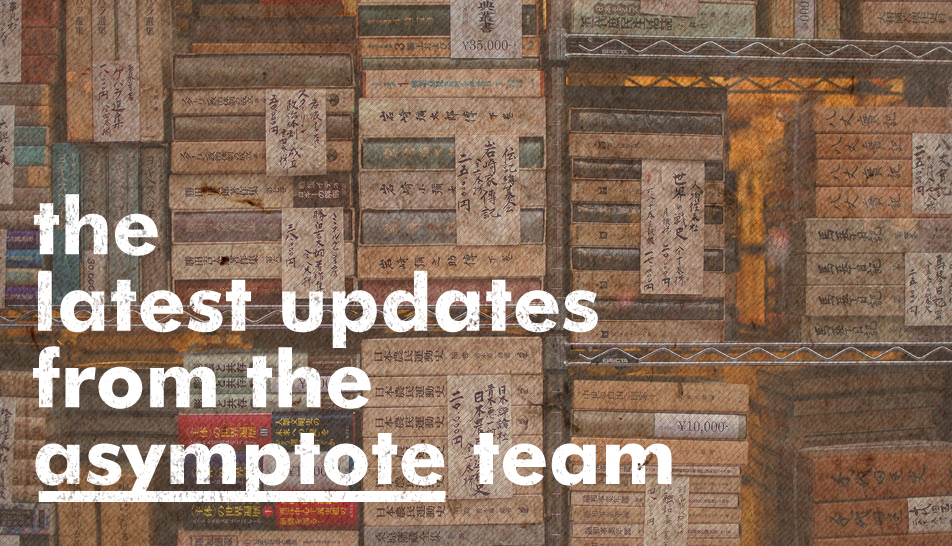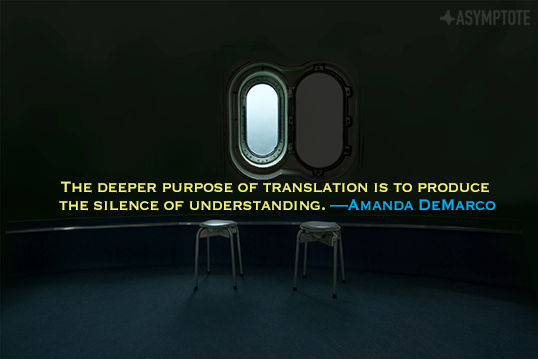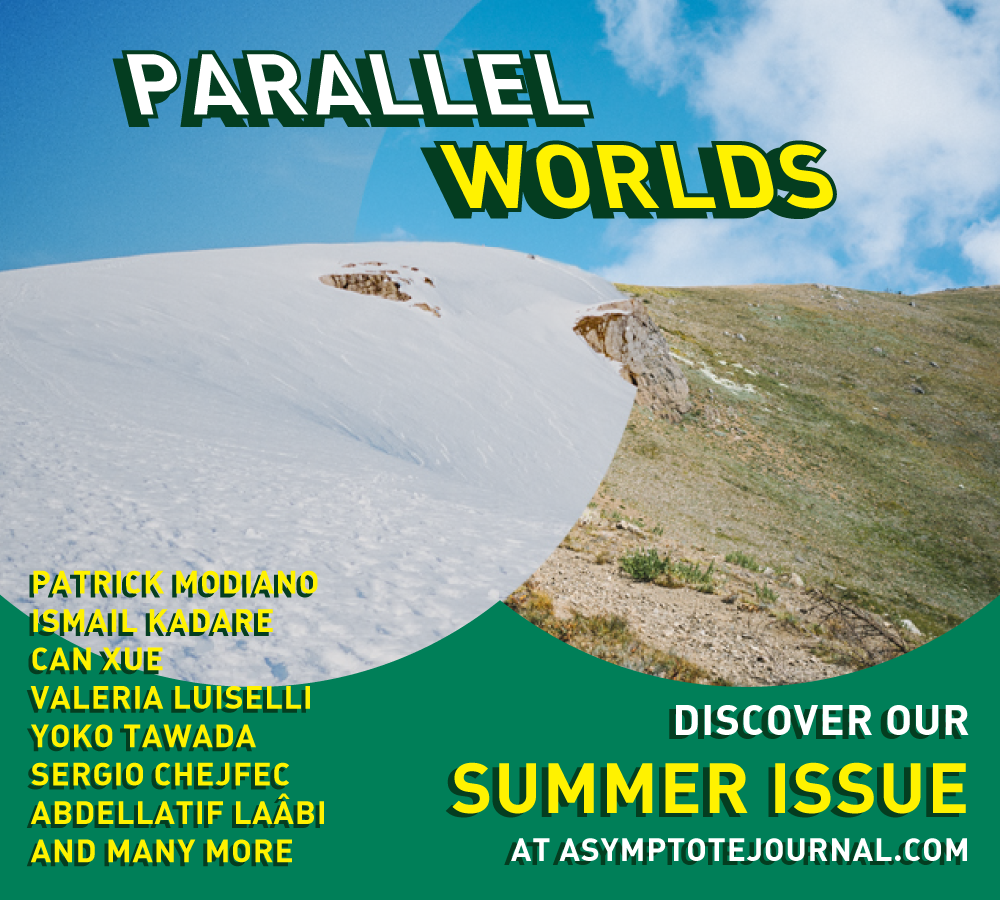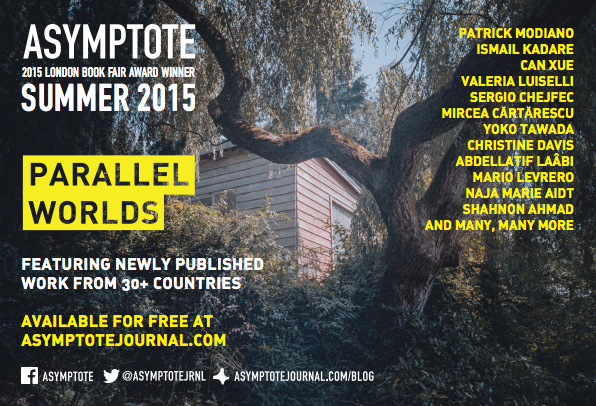An excerpt from poetry editor Aditi Machado‘s translation of Farid Tali’s Prosopopoeia recently appeared in World Literature Today. The entire work is forthcoming from Action Books in 2016.
Over at his blog, contributing editor Adrian West joins Michael Orthofer in bemoaning the relative obscurity into which German writer Peter Weiss has fallen and argues that Weiss’s Aesthetics of Resistance might be the most radical novel of the twentieth century.
Drama editor Caridad Svich will be giving a talk entitled “Staging Place: Theatrical Crossings in Translation and Adaptation” at Mary Baldwin College’s Francis Auditorium at 7 PM on Sep 21.
Commissioning editor J.S. Tennant translated Enrique Vila-Matas’s “Writers from the Old Days” for The White Review recently.
Assistant editor Kara Billey Thordarson (K.T. Billey) had poems appear in Cosmonauts Avenue and Prelude. In August, she was named a finalist for the 2015 Pamet Prize from YesYes Books. Kara also read for Columbia University’s Studio A Arts radio show recently, sharing poems and talking philosophy of language, logic, and gender. READ MORE…





